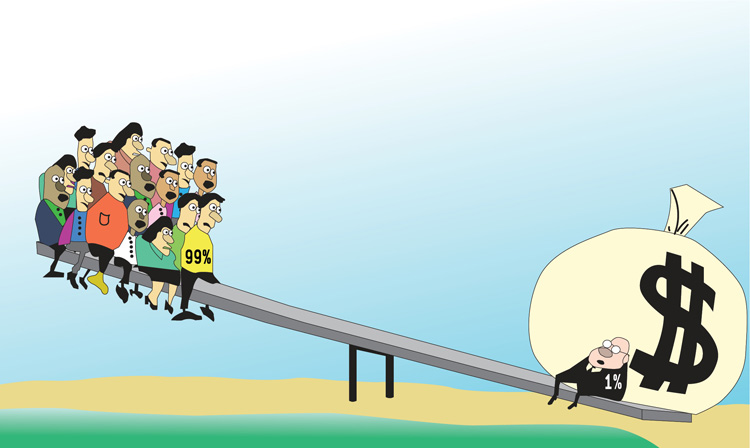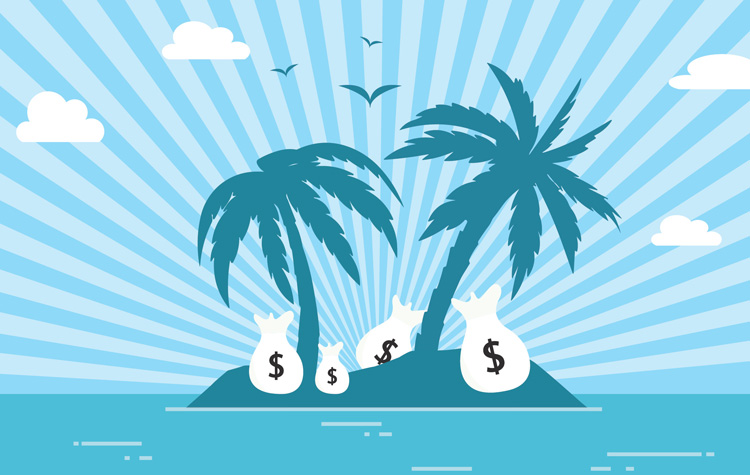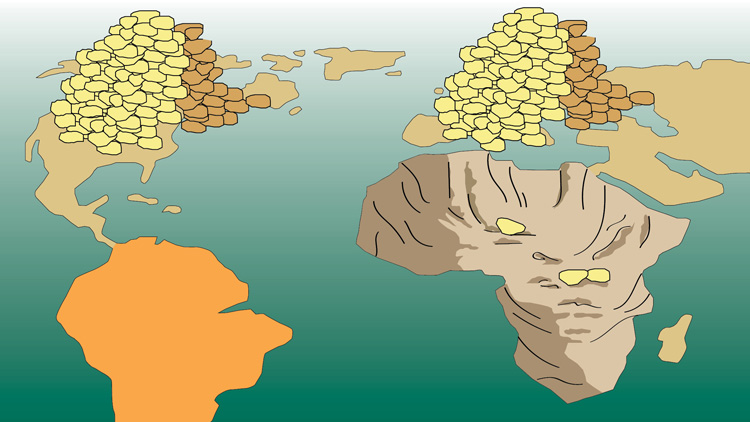INDIAN ARMED FORCES CHIEFS ON OUR RELENTLESS AND FOCUSED PUBLISHING EFFORTS

The insightful articles, inspiring narrations and analytical perspectives presented by the Editorial Team, establish an alluring connect with the reader. My compliments and best wishes to SP Guide Publications.

"Over the past 60 years, the growth of SP Guide Publications has mirrored the rising stature of Indian Navy. Its well-researched and informative magazines on Defence and Aerospace sector have served to shape an educated opinion of our military personnel, policy makers and the public alike. I wish SP's Publication team continued success, fair winds and following seas in all future endeavour!"

Since, its inception in 1964, SP Guide Publications has consistently demonstrated commitment to high-quality journalism in the aerospace and defence sectors, earning a well-deserved reputation as Asia's largest media house in this domain. I wish SP Guide Publications continued success in its pursuit of excellence.
- Operation Sindoor: Resolute yet Restrained
- India’s Operation Sindoor Sends a Clear Message to Terror and the World – ‘ZERO TOLERANCE’
- Japan and India set forth a defence cooperation consultancy framework, talks on tank and jet engines
- Terrorist Attack in Pahalgam in Kashmir: Unfolding a long surgical war against PAK
- Lt General Pratik Sharma takes over Command of Indian Army's Northern Command
Neocolonial Capitalism
From Exploitation to Empowerment, Charting a Course to Global Economic Equity
 |
The Author is former Chief of Staff of a frontline Corps in the North East and a former helicopter pilot. He earlier headed the China & neighbourhood desk at the Defence Intelligence Agency. He retired in July 2020 and held the appointment of Addl DG Information Systems at Army HQ. |

As the colonies gained independence after the devastating WW II, people in those newly independent Afro-Asian countries had much to celebrate. But for most African nations, this euphoria was short-lived. Most new rulers turned out to be despots, utterly corrupt and more ruthless than their colonial masters. So followed a series of revolutions, some inspired by the communist ideology then spearheaded by the Soviet Union and inspired by the likes of that iconic revolutionary Che Guevara. Then followed counter-revolutions as African countries basically became a chessboard where Moscow and Washington supported different parties.
The Global Economic Divide
All that changed in 1991 when the Soviet Union collapsed and America became the world's hegemon. This should have been an opportunity to rebuild their economies by embracing the expansive fruits of capitalism. But 30 years on, tens of thousands of Africans take perilous boat rides across the Mediterranean to escape poverty and wars. Washing up on the shores of Italy and Greece, they hope to seek a new life in prosperous Europe.
The U.S. utilises its Reserve Currency status to maintain a lifestyle fuelled by a continuous drain on global south resources
The situation in Latin America is no better as millions from Columbia, Haiti, Guatemala, Honduras and other impoverished nations take dangerous journeys across countries infested with drug cartels and militias to the Mexican borders and attempt to enter the US. So have millions done from the war-torn Afghanistan, Syria, Iraq and Yemen in the past decade, trudging by land to Europe through Turkey. The Asian countries have more or less escaped that desperation but still, tens of thousands from South Asia have taken the legal and illegal routes to seek greener pastures in the developed nations in Europe and North America.

The question arises as to why this developmental divide persists even after colonialism ended by 1960s after WW II and the cold war in 1991? Is the prosperous North more resource rich, more hard working and more industrious than what is loosely called the Global South? How have the former colonial powers and the new age hegemon the US continued to prosper even when exploitation and extraction from the colonies would have come to an end with end of colonialism?
Some of the answers to these profound questions are coming to the surface. There can be a range of reasons for the global South to have remained poor despite gaining their freedom, despite being resource rich and despite being populated by hardworking masses. Three major external factors that have had the most pernicious impact on their growth have revealed themselves; financial loot perpetrated through offshore tax havens established by the British as colonies gained freedom; resource loot through exploitative arrangements entered by France while exiting its colonies in Africa; and finally the financial system of petrodollar as the global reserve currency operated and resolutely protected by the US through the Bretton Woods institutions and through direct wars, engineered regime changes, coups and coloured revolutions over the past five decades.
Offshore Tax Havens and Financial Networks Have Siphoned Trillions from the Global South, Exposing a Continuing Legacy of Exploitation
In a sense, imperialism never ended, it only changed form as the rich North discovered newer ways and means to exploit the global South.
Tax-free Havens
The timelines when these noxious factors got unmasked through definitive events are not watertight. But loosely positioned, the tax havens were the first to get exposed. The Bank of England and the City of London laid the foundations of a shady financial network in the sixties where the world's ultra-wealthy look for tax havens to shield income and wealth from their domestic governments. Four of the top 20 tax havens-Cayman Islands, British Virgin Islands, Guernsey, and Jersey are British Overseas Territories or Crown Dependencies. Together with the US, Switzerland, Luxemburg, Panama, Hong Kong etc, they serve as the financial magnets for an estimated $50 trillion of wealth that have been sucked away from territories where they truly belong. London protects the financial crooks, reason why almost all millionaire fugitives from India have found a protective shelter in London.

Offshore Leaks was the first big explosive leak published in April 2013 followed by the Panama Papers, and the Pandora Papers by the International Consortium of Investigative Journalists (ICJU). They dumped millions of encrypted confidential documents that detailed the money trails of the virtual who's who involving monarchs, politicians, public officials, businessmen, celebrities, American tech billionaires, Russian oligarchs, Columbian drug lords and crime syndicates revealing the real owners of more than 29,000 offshore companies from more than 200 countries. Now countries are pushing back, tightening compliance and enforcement regimes like India's DRI and ED.
The Franc CFA agreements, that grants access to vital resources at minimal cost, give France extractive arrangements with African Nations since 1945
French CFA Extractive Agreements
The recent coups in Africa and the anti-French sentiments sweeping the region are a stark pointer to the extractive arrangements that France established through the Franc CFA (French Colonies in Africa) since 1945. With binding and exclusive rights to exploit the strategic mineral of these countries, France imports Uranium, cobalt, oil and gold not in US dollars or Euros which it has to earn but in Franc CFA which it prints for these countries. In a sense France gets these resources almost free.

The Petrodollar System
So what is it with the US, which delinked the $ from gold in August 1971, going back on the commitment that had been the foundation of the international monetary system created in 1944 at Bretton Woods. The petrodollar system allows the US to exports dollars to the world by purchasing oil, manufactured goods and commodities, and other countries return it to the US by purchasing American weapons, high-tech and American debt. Simply put, it just prints money to sustain its American way of life. Rich countries continue to rely on a large net appropriation from the global South. One estimate suggests that over the whole period from 1960 to today, the drain totalled $62 trillion in real terms.
BRICS Nations contemplate a paradigm shift away from the petrodollar, paving the way for fair trade policies and sovereign economic empowerment
The Ukraine crisis which saw the US seize $300 billion of Russian money in western banks came as a rude shock to the rest of the world. There is concerted move to steer away from the US petrodollar as reserve currency and for BRICS to mull a commodity backed basket of currency for international trade, democratise the institutions of global economic governance and allow poor countries the right to use tariffs, subsidies and other industrial policies to build sovereign economic capacity bypassing the west-leaning WTO regime.
The tide may be turning to usher in a more just and fairer world that frees the countries to mobilise their resources around ending poverty and meeting human needs. Here is a pivotal role that India can play. One Earth, One Family, One Future.





